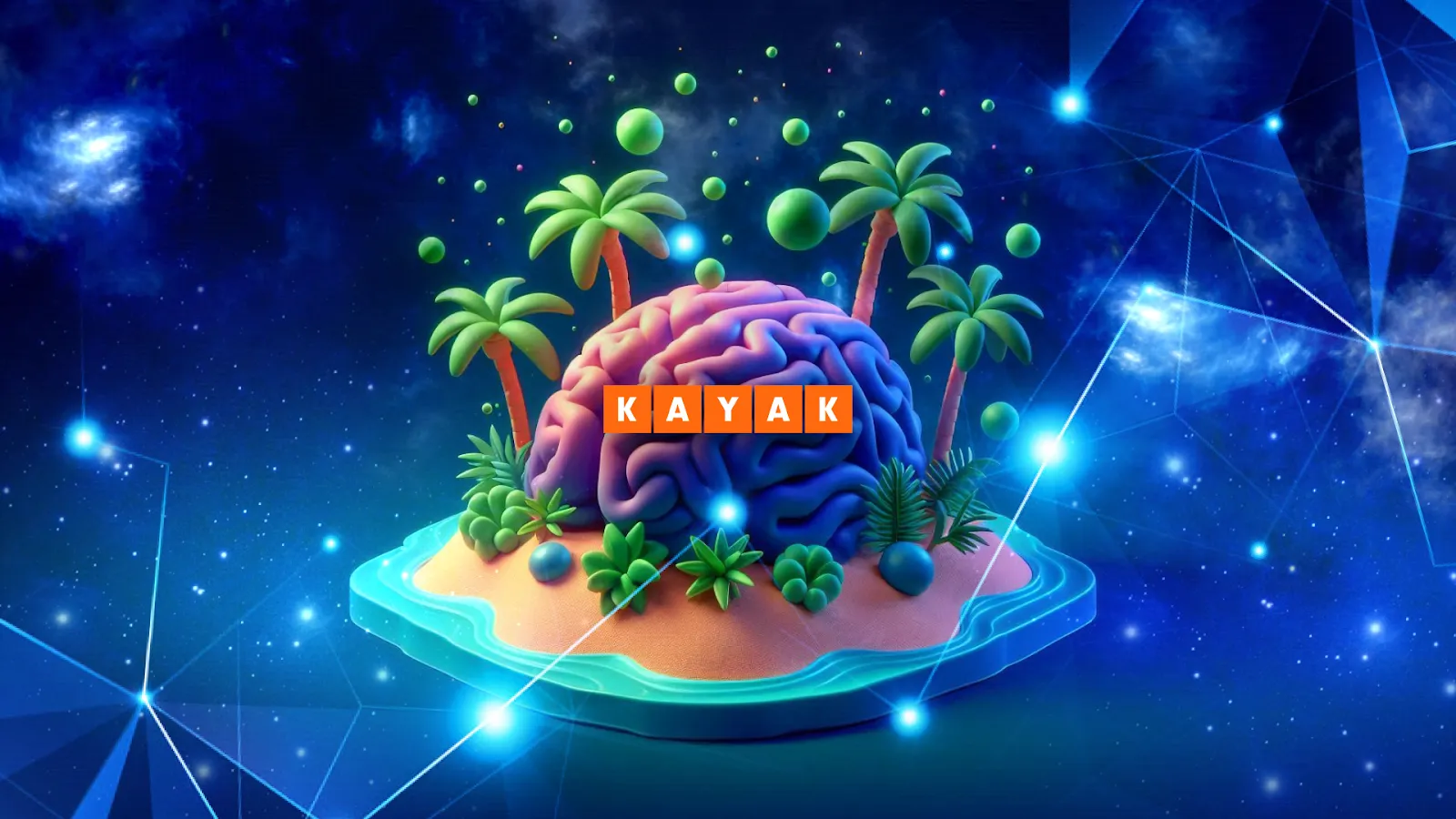
Welcome to Crypto Weekly Digest 🚀
The world of crypto and AI never sleeps—and neither do the headlines. From Stripe-backed Tempo reshaping blockchain payments and Dubai’s Machine Economy giving robots bank accounts, to Ripple’s $1B fintech move and Tether’s unexpected football play, innovation is firing on all cylinders. 🌍💸
This week, we’re diving deep into the crossover of finance, tech, and culture—where banks are minting stablecoins, meme coins are buying football clubs, and DeFi keeps finding new playgrounds. The AI scene isn’t far behind either: from Kayak’s travel chatbot to Periodic Labs’ $300M science revolution, the synergy between automation and intelligence is turning bold ideas into billion-dollar realities.
So grab your digital coffee ☕, and let’s scroll through the stories shaping the next wave of crypto, Web3, and AI. It’s been a week of bold bets, smart money, and a few memes with real market value. 💫

Stripe has helped launch a brand-new blockchain called Tempo, and it’s already making waves with a massive $5 billion valuation after raising $500 million in fresh funding. The platform is built to handle stablecoin and real-world payment flows, meaning it wants to make blockchain payments as seamless as swiping a card. Unlike most crypto startups, Tempo is focused on real utility—connecting businesses, banks, and consumers through a faster, cheaper, and transparent payment system.
Big names like Greenoaks and Thrive Capital backed the project, though Stripe itself interestingly stayed out of the round. Tempo could soon become the bridge between traditional finance and the blockchain world, beating to its own “tempo” in the fintech orchestra. 💸🌐
Dubai has once again proved it loves the future by partnering with peaq network to regulate what it calls the “Machine Economy.” This bold move includes launching the world’s first Machine Economy Free Zone, a sandbox where robots, vehicles, and IoT devices will be able to own assets, make payments, and even earn crypto. The idea is that machines could one day manage their own finances—think delivery drones paying for fuel or cars renting themselves out.
The project combines the growing DePIN (Decentralized Physical Infrastructure Networks) trend with strong regulatory support. Dubai is basically saying: if the robots are coming, they might as well pay taxes. 🤖💰
Global money transfer giant Wise seems to be tiptoeing into crypto territory with plans to hire a Digital Asset Lead focused on stablecoins and blockchain payments. The role suggests Wise is exploring how to integrate stablecoins into its international transfer system, potentially cutting fees and speeding up transactions.
It’s not an official product launch yet—but it’s a clear signal that even traditional fintechs see crypto rails as the future of payments. If Wise makes the move, millions of users could soon be moving money globally via blockchain without even realizing it. Sometimes innovation starts quietly, with a single job posting. 🌍💼
After a year of uncertainty, the blockchain gaming industry is seeing signs of life again, pulling in about $129 million in new investments in Q3 alone—its best quarter of 2025. Investors are betting that this time, blockchain games will focus on fun first, tokens second, shifting away from “play-to-earn” schemes.
Studios are experimenting with better gameplay, ownership models, and smoother integration of NFTs that feel natural, not forced. While still below 2024’s boom levels, the rise signals growing maturity in the sector. GameFi might finally be finding its balance between gamers and investors—and that’s a win worth playing for. 🕹️✨
Ripple just dropped $1 billion to acquire GTreasury, a major corporate cash management platform, marking its biggest push yet into traditional finance. The acquisition means Ripple can now serve large enterprises with crypto-powered tools for liquidity, payments, and cash flow management—all under one roof.
It’s a clear message: Ripple wants to be more than just the company behind XRP; it wants to become a cornerstone of the digital financial ecosystem. By blending blockchain speed with corporate structure, Ripple is inching closer to being the “Microsoft Office” of digital finance. 📊💰
France is taking a bold leap into digital capital markets with the approval of the Lightning Stock Exchange (Lise)—a platform set to host fully tokenized IPOs by 2026. The exchange will let small and mid-sized companies list their shares directly on-chain, cutting out paperwork and middlemen.
By using blockchain, listings could become cheaper, faster, and more transparent for both investors and issuers. It’s also a milestone for European innovation, showing that tokenization isn’t just a crypto dream—it’s the next step in capital markets. France wants to make stocks sizzle again, one token at a time. 🇫🇷💡
Solana co-founder Anatoly Yakovenko is back with another surprise: a brand-new perpetual DEX (decentralized exchange) called Percolator. Built natively on Solana, it’s designed to make futures trading lightning-fast and super affordable. In classic open-source fashion, Yakovenko even told developers to “steal it,” encouraging the community to fork and improve the project.
The move signals Solana’s growing interest in DeFi’s most competitive niche—derivatives trading. With its speed and playful energy, Percolator could brew up some real competition for existing exchanges. ☕💫
A growing movement of Bitcoiners, backed by Jack Dorsey, is calling on the privacy app Signal to adopt Bitcoin payments via the Cashu protocol. The vision? A chat app where users can message privately and send BTC instantly—without banks or centralized wallets in between. It’s an idea that merges privacy, decentralization, and finance into one encrypted ecosystem. While Signal hasn’t confirmed anything yet, supporters say it could redefine digital communication and peer-to-peer payments. Imagine sending memes, emojis, and money all in one chat—welcome to the future of texting. 💬⚡

Former New York governor Andrew Cuomo is running for mayor of NYC, and his platform is as futuristic as it gets—he wants to turn the city into a global hub for crypto, AI, and innovation. His plan includes establishing an Innovation Council, appointing a Chief Innovation Officer, and creating a regulatory sandbox for emerging tech startups.
Cuomo says it’s time to make New York a magnet for blockchain talent and investment again. It’s a bold rebrand attempt for both him and the city, and while skeptics raise eyebrows, crypto enthusiasts are listening closely. 🗽💡
Stablecoin giant Tether is kicking off a new kind of play—this time in the world of football. The company, which holds over 10% of shares in Juventus FC, plans to nominate its own candidates to the club’s board of directors. It’s also joining the team’s capital increase, signaling long-term interest in the club’s future.
This unusual mix of blockchain finance and Serie A football could mark a new era of crypto involvement in sports management. Who knew stablecoins and soccer could share the same field? ⚽💶🔥
Robinhood is diving deeper into blockchain by launching 500 tokenized U.S. stocks and ETFs on the Arbitrum network, available for EU customers. The move allows users to trade fractions of top stocks like Apple or Tesla 24/7, all backed by blockchain infrastructure instead of traditional brokers.
These aren’t real shares but synthetic versions regulated under Europe’s MiFID II framework—still, it’s a big step toward blending TradFi and DeFi. Robinhood has already issued over $19 million in tokenized assets, with a total portfolio value of about $8.5 million. By lowering the entry point to just 1 euro, Robinhood is aiming to democratize global investing one token at a time. 💸🌍
Uniswap has just added Solana support to its web app, meaning users can now swap tokens, provide liquidity, and track pools across even more networks. This move marks a major expansion for the world’s most popular decentralized exchange, which already operates on Ethereum, Polygon, and others.
Solana’s high speed and low fees make it a perfect match for Uniswap’s growing multichain vision. Developers and traders alike are buzzing—faster transactions, cheaper trades, and broader DeFi reach. Looks like Uniswap is really living up to its name: one swap to rule them all. ⚡💧
Crypto exchange Kraken is making a $100 million play to expand its U.S. futures business by acquiring Small Exchange, a derivatives platform owned by IG Group. The deal gives Kraken a fully regulated entry point into the American futures market, letting users trade crypto-linked derivatives with ease.
The acquisition follows Kraken’s growing interest in institutional services and advanced trading tools. With this move, Kraken isn’t just swimming with the crypto tide—it’s making waves in traditional finance too. 🌊📈
Coinbase is doubling down on India’s crypto scene by investing in CoinDCX, valuing the local exchange at $2.45 billion. The investment is a strong signal of confidence in India’s digital-asset market, even as the country wrestles with regulatory uncertainty. CoinDCX plans to use the funds to expand its Web3 ecosystem, onboard developers, and boost user education.
For Coinbase, it’s also a strategic foothold in one of the world’s fastest-growing crypto economies. Looks like crypto’s next chapter could have a strong Indian accent. 💪🪙
Daylight, a startup building decentralized solar energy infrastructure, has raised $75 million to connect renewable energy systems with blockchain. The company is part of the growing DePIN (Decentralized Physical Infrastructure Networks) movement, where communities build and own real-world networks—like power grids—using crypto incentives.
With Daylight, people can invest in and earn from solar installations directly via blockchain smart contracts. 🌞🔋 The goal? To make clean energy generation as decentralized as DeFi. Energy meets crypto, and the future looks bright.
Huobi’s founder, Justin Sun, is reportedly raising capital for a new Ethereum-based investment strategy, aiming to leverage staking and liquid restaking opportunities. The plan appears focused on optimizing ETH yields using protocols like EigenLayer and Lido, tapping into the expanding “restaking” market.
While details remain under wraps, insiders say Sun is courting private investors to build a fund that bridges traditional finance with DeFi yield generation. It’s another power move from the crypto mogul, who seems determined to stay relevant in Ethereum’s evolving landscape. ⚙️🔥
Social platform X has unveiled its new Handle Marketplace, letting premium users bid for inactive usernames—effectively turning online identities into Web3 assets. 🏷️ This initiative helps X diversify its revenue beyond ads while tapping into the booming market for digital identifiers like short usernames and domain-style handles.
These usernames are now treated like online real estate with tangible market value, where rare handles could sell for thousands (or even millions). For now, access is limited to premium subscribers, but it’s a bold step toward merging digital identity with blockchain economics. 🪙✨

The House of Doge, tied to the Dogecoin community, has taken a bold step into the sports world by acquiring a majority stake in Italian football club U.S. Triestina Calcio 1918. The goal? To blend crypto culture with traditional football by turning the club into a hub for Web3 fan engagement, NFT collectibles, and DOGE-based payments.
Fans may soon be able to buy tickets, merchandise, and even vote on club activities using crypto. It’s a fun, slightly surreal fusion of meme-coin energy and real-world legacy sports. From internet joke to football investor—Dogecoin just keeps defying expectations. 🐕⚽🚀
BlackRock has officially launched its iShares Bitcoin ETP on the London Stock Exchange, following regulatory approval from the UK’s Financial Conduct Authority (FCA). The move opens the door for institutional and retail investors in Britain to gain Bitcoin exposure through a traditional investment vehicle—no private keys required.
Each ETP share represents a fraction of real Bitcoin held in custody, giving investors a secure, compliant path into crypto. The launch is another clear sign that digital assets are moving from the fringe to the financial mainstream. The world’s largest asset manager is now saying: “Yes, Bitcoin belongs in your portfolio.” 💼💰⚡
Franco-German Bank ODDO BHF Launches Euro Stablecoin 💶
European banking powerhouse ODDO BHF has joined the stablecoin race with the launch of a euro-backed token, aiming to bridge traditional banking with blockchain finance. The stablecoin will be issued on a regulated DLT platform, ensuring 1:1 backing by euro reserves held under EU supervision.
This move aligns with Europe’s push toward MiCA-compliant digital assets, giving businesses and institutions a safer way to transact on-chain. With this, ODDO BHF positions itself as one of the first major European banks to turn stablecoins from crypto experiment to corporate tool. The euro just got its digital twin. 🏦💶🌍
Avail has integrated with the Tron network, enabling Tron-based dApps and users to access cross-chain liquidity and unified markets through Avail’s data availability layer. The partnership allows assets from different blockchains to move more easily across ecosystems, reducing fragmentation and improving DeFi scalability.
For Tron users, this means seamless access to liquidity pools and a smoother multi-chain trading experience. 🚀 This collaboration signals a big step toward true blockchain interoperability—one where users don’t even need to think about which chain they’re on. The walls between blockchains are finally starting to crumble. 🔗💧
Japan’s top financial institutions—including Mitsubishi UFJ, Mizuho, and Sumitomo Mitsui—are teaming up to launch a blockchain-based stablecoin platform called Progmat Coin. Designed to comply with Japan’s new stablecoin laws, the initiative will allow banks to issue yen-backed tokens usable across multiple networks.
The project aims to modernize payments, settlements, and corporate finance in Japan’s heavily regulated market. 🏯💴 The partnership shows how even traditional megabanks see stablecoins as the next step in digital transformation. If successful, Japan could become Asia’s blueprint for regulated, bank-backed crypto assets. 🌸💡
City Protocol, a new Web3 project, is reimagining cultural and creative capital by turning it into on-chain intellectual property (IP) assets. Through its decentralized marketplace, creators, cities, and brands can tokenize music, art, or local heritage into tradeable, revenue-generating tokens.
The goal is to bring transparency and monetization to culture itself—imagine owning a fraction of a city’s mural, anthem, or festival rights. 🏙️🎨 This fusion of blockchain and cultural economics could reshape how creative industries fund and protect their IP, moving local creativity into the global digital economy.
While other platforms are pivoting toward “trade-anything” marketplaces, OpenSea is doubling down on its roots—NFTs only. The company says it remains focused on creators, collectors, and digital artists rather than expanding into tokenized stocks or real-world assets.
This decision reinforces OpenSea’s belief that NFTs represent a unique cultural and artistic movement, not just another financial product. 🌈 In a time when Web3 is blurring boundaries, OpenSea’s choice feels almost rebellious—a reminder that not everything on the blockchain needs to be a commodity. 🖼️🔥
Billionaire investor Tim Draper has led a $3.2 million seed round for Ryder, a startup aiming to replace the traditional crypto seed phrase with its new TapSafe recovery system. The feature lets users securely back up and recover wallets using biometric verification and physical devices, eliminating the fear of losing access forever.
Ryder’s goal is to make self-custody safer and more human-friendly, especially for newcomers. 🧠💡 With Draper’s support, the company is betting that easy-to-use crypto wallets could be the key to mass adoption. Goodbye 12 words, hello tap to recover. 📱🔒
Stratis has officially rebranded as Xertra, marking a major pivot toward DeFi infrastructure and blockchain gaming. The company says the new name reflects its evolution from a blockchain-as-a-service provider to a Web3 ecosystem focused on interoperability and user experience. Xertra plans to expand its tools for developers, NFT creators, and studios while building a new DeFi framework that supports gaming economies. 🎮💰
It’s not just a name change—it’s a strategic refresh meant to reignite innovation and attract a new generation of builders. Game on.
China Merchants Bank International has unveiled a massive $3.8 billion fund dedicated to supporting BNB Chain projects in Hong Kong, as part of its efforts to accelerate Web3 growth in the region. The fund will back startups working on blockchain infrastructure, tokenized finance, and real-world asset tokenization. 🇨🇳💹
This initiative aligns with Hong Kong’s push to position itself as Asia’s premier crypto hub under its new digital-asset framework. With big banking muscle behind it, the partnership could spark the next wave of institutional blockchain adoption in China’s financial sphere. 🔥💼

Kayak has rolled out a new AI Mode on its website and mobile platform, letting travelers chat naturally to find trips faster and smarter. Instead of clicking through endless filters, users can simply ask things like “Where can I fly for under $500 next month?” and get real-time flight, hotel, and rental car suggestions.
Powered by generative AI and Kayak’s vast travel data engine, the feature makes trip planning feel more conversational and personalized. It’s currently live in English for U.S. users, with a global rollout and voice support on the way. Kayak hopes to turn casual daydreams into booked adventures—all through a friendly chat. 🌍✈️💬
Periodic Labs, a new AI startup founded by ex-researchers from OpenAI and Google Brain, has burst out of stealth with a staggering $300 million seed round. The company is building AI-driven robotic labs capable of running experiments autonomously—essentially letting AI act as both scientist and lab assistant.
Their mission is to supercharge scientific discovery in materials, energy, and chemistry by automating the entire research cycle. It’s one of the largest early-stage rounds in the AI space this year, drawing top-tier investors eager to back the next big leap in applied science. The fusion of robots, data, and AI could turn laboratories into nonstop innovation machines. 🔬🤖💥
Rising European AI star Nexos AI has secured $30 million to accelerate enterprise adoption of artificial intelligence tools. The company helps large businesses deploy and manage AI models securely, with a focus on regulatory compliance and data privacy. Its platform integrates directly with existing corporate infrastructure—turning slow, cautious organizations into agile AI adopters.
With new funding, Nexos plans to expand across Europe and hire top AI engineers to strengthen its product suite. The message from investors is clear: Europe’s next wave of AI growth will come from business transformation, not just flashy chatbots. 🇪🇺⚙️✨
Cercli, a Y Combinator alum, has raised $12 million in an oversubscribed Series A to modernize HR management across the Middle East and North Africa. Dubbed the “AI-powered Rippling for MENA,” the platform automates payroll, hiring, and compliance while offering multilingual support for regional companies.
With the region’s workforce booming, Cercli’s founders see an opportunity to simplify how businesses onboard and manage employees across borders. The new funding will fuel expansion into Saudi Arabia and the UAE. The startup’s mission is simple—make HR as smooth and smart as a conversation. 💬💼🤖
AI company Anthropic has officially launched Claude Code as a web-based tool, expanding its developer ecosystem. The platform allows coders to generate, debug, and refactor software directly in their browsers using natural-language prompts.
Unlike traditional AI coding assistants, Claude Code is designed for collaboration—it explains reasoning, suggests alternatives, and can even read full repositories. This web launch follows rising developer demand for flexible AI assistants that can plug into existing workflows. Anthropic’s move signals a growing shift: coding is no longer just syntax, it’s a dialogue between human and AI. 💡⌨️
Two AI models, Grok (developed by xAI) and DeepSeek, are reportedly outperforming ChatGPT and Gemini when it comes to analyzing crypto markets. Their edge lies in real-time data access and sentiment-driven trading insights, helping traders spot trends and price movements faster than ever.
As AI becomes a key part of crypto strategy, these tools could change how investors react to volatility—replacing gut feelings with algorithmic precision. 🚀📊 In a world where seconds matter, smarter AI might just be the new alpha.
A former Scale AI executive has raised $9 million to launch a new startup focused on bringing AI solutions to critical sectors like healthcare, logistics, and infrastructure in the Middle East and North Africa. The company aims to provide enterprise-grade AI services where data sensitivity and reliability are crucial.
Its platform enables organizations to deploy models safely while staying compliant with regional regulations. The funding will help expand operations in Dubai and Riyadh, positioning the startup as a key AI infrastructure provider for emerging markets. 🌍⚙️💡
General Intuition, an ambitious new AI research company, has raised $134 million in seed funding to teach artificial agents spatial reasoning using video game clips. By analyzing complex 3D environments, the company’s models learn how physical objects interact—knowledge that could improve robotics, AR, and autonomous navigation.
The startup’s approach blends neuroscience, reinforcement learning, and simulation to make AI “think” more like humans in visual spaces. With backing from top-tier investors, General Intuition wants to make digital agents not just smart—but aware of the world around them. 🧩🚀
Job seekers, rejoice—AI startup Jack & Jill has raised $20 million to revolutionize how people find work. The company’s conversational AI helps users craft resumes, prep for interviews, and connect directly with recruiters using natural dialogue. Think of it as a career coach in your pocket—personalized, fast, and available 24/7.
The platform aims to make job hunting less stressful and more strategic by turning the process into a friendly chat. As the job market grows more competitive, Jack & Jill might just be every job seeker’s new best friend. 🧠💬🌟
Insurtech startup Liberate has secured $50 million at a $300 million valuation to inject AI into the often-overlooked world of insurance operations. Its platform automates claims processing, policy administration, and compliance checks—areas notorious for red tape and inefficiency.
By using generative AI, Liberate can extract and process complex documents in seconds, saving insurers time and money. The company is targeting legacy systems that large insurance firms struggle to modernize. With investors piling in, it’s clear: the next big AI wave might be less about chatbots and more about cleaning up corporate chaos. 📄⚡💼
Until Next Time 💌
That’s a wrap for this week’s Crypto Weekly Digest—where blockchains keep evolving, AI keeps surprising, and the lines between digital and real life blur a little more every day. Whether you’re here for the tech, the markets, or the memes, one thing’s clear: the future is being built right now, one transaction (or prompt) at a time. ⚡
Stay curious, stay decentralized, and don’t forget to back up your wallet and your sense of humor. 😉 See you next week for more stories from the edge of innovation. 🌐✨
